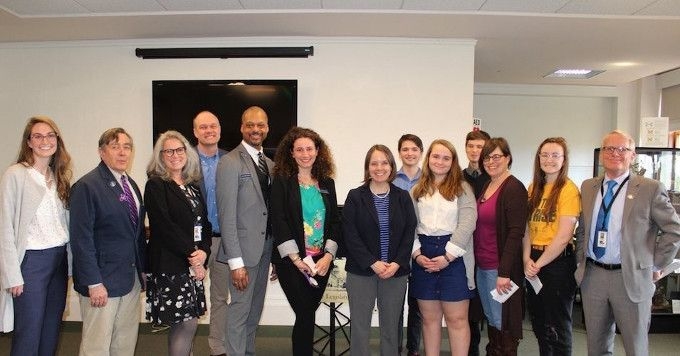
By Frances Moore Lappé | Common Dreams
How often I hear that in “polarized” America rural voters will reject a green agenda out of hand. For them, green means liberal, tree-hugging snobs, unconcerned about the struggles of real working people.
But last week that frame busted for me when I had a chance to speak with Chloe Maxmin, a 27-year-old Maine legislator.
Never heard of Chloe Maxmin?
Well, keep reading, and maybe you’ll agree with me that the story she and colleagues are writing brings many surprises and lessons worth spreading.
“From the beginning, I was very clear in our messaging that my [Green New Deal] bill was by and for Maine, by and for my community, that was specific and targeted legislation to lift up the voices of rural and working Maine.”
—Maine State Rep. Chloe MaxminMaxmin grew up on her parents’ farm in Nobleboro, a Maine town of about 1,600. Describing herself as an activist since age 12, in 2015 she earned a degree at Harvard while making time to co-found Divest Harvard, a campaign to push the university’s divestment from fossil fuels.
The battle to make Harvard divest is still unresolved, but Maxmin’s run for a seat in Maine’s House of Representatives in 2018 had a decisive outcome.
First, she won the Democratic primary for District 88 with almost 80 percent of the vote. Then, she took on Republican Michael Lemelin, a local businessman and retired pilot. Though her district had never chosen a Democrat, she received 52.5 percent of the vote.
Given her youth, it’s striking that Maxmin now represents a district with one of the oldest populations of any district in the country. Three quarters of her district lies in Lincoln County, where roughly 28 percent of residents are older than 65—a share exceeding the national average by 75 percent.
And how did she win against all odds?
First, Maxmin was helped by Maine’s 1996 “Clean Elections” law entitling candidates for the state legislature to receive public financing—if they first collect from voters in their district a certain number of small contributions. For a seat in Maine’s House, it’s sixty $5.00 contributions. They also agree not to raise or spend any private money. Maine’s “Clean Elections” law levels the campaign-playing field, making running for office accessible to anyone regardless of income or background. It helps to hold candidates accountable to the voters, not to their funders.
While 14 states offer some kind public campaign financing for some offices, only two other states offer full public funding for state legislative offices (Connecticut and Arizona), and in Arizona, the program has been seriously undermined.
While Clean Elections helped to make Maxmin’s campaign possible, her success reflects core messages and a campaigning approach that resonates with voters. “Whenever people ask me how we won, and how we did it, my answer, quite frankly, is just to listen to people, pay attention.” She stressed that “once you get through differing opinions on policy issues, below that… we all share an incredibly deep frustration with our government.”
She sees the state level as offering “opportunity to really rebuild our humanity and rebuild our faith in each other and politics.”
One encounter with a gentleman living in a trailer home at the end of a narrow dirt road seemed to capture her point. He was surprised “to see me,” as “I was the first political candidate to come to his door and listen.” At the end of their talk, he told Maxmin, “You’re the first person to listen to me. Everyone judges what my house looks like. They don’t bother to knock. I’m grateful that you came. I’m going to vote for you. Thank you.”
In all, her campaign team knocked on at least 10,000 doors…and listened.
Once in office, Maxmin quickly moved on her commitment to helping her district by passing Green New Deal legislation.
“From the beginning, I was very clear in our messaging that my [Green New Deal] bill was by and for Maine, by and for my community, that was specific and targeted legislation to lift up the voices of rural and working Maine. I called it the Green New Deal so everyone would pay attention to it and a different way of talking about climate change. Most people got it and also understood that it was different from what's going on in D.C.”
Fortunately, five colleagues—including two Republicans—in the state’s House and Senate shared Chloe’s values enough to introduce their own complementary legislation. “We had to make up for eight years,” of the Republican governor, and climate-change denier, Paul LePage who had blocked every climate initiative whatsoever.
Despite finding allies, it wasn’t always easy. When, after only six months in office, Maxmin stood at the chamber podium to introduce her Green New Deal for Maine Act, Republican colleagues immediately interrupted her, not once but four times in quick succession.
Maxmin remained undeterred, and ultimately her Green New Deal bill passed by a hefty margin: 84 to 55.
In all, seven green bills passed between February and June, including a state “renewable energy portfolio standard” and a goal of 80 percent renewable energy by 2030 and 100 percent by 2050. Maine also set the goal of reducing the state’s greenhouse gas emissions by 80 percent by 2050.
With this success, Maine became the third state after California and New Mexico to pass a Green New Deal and a carbon-reduction goal.
Maxmin is especially proud that her Green New Deal was endorsed by a state AFL-CIO affiliate, the first such bill at the state level to receive labor’s support. Why? Her bill specifically mandates that a share—beginning with 10 percent and rising to 25 percent by 2027—of jobs in major solar installations have to be filled by those in apprentice programs registered with the Department of Labor.
Maxmin’s strong positions on climate and economic justice impress me, but what also makes her a great leader for our time is her commitment to democracy itself.
Though leadership clearly focuses on the “big questions,” Maxmin is also finding time to attend to her district’s immediate needs including passing bills, for example, to improve transportation for seniors, as well as hosting monthly coffees at the local diner to talk with constituents about their concerns.
Maxmin’s strong positions on climate and economic justice impress me, but what also makes her a great leader for our time is her commitment to democracy itself. “Everything in our lives depends on our political system, and we need to figure out different ways of running campaigns, figure out how to actually represent the people—with respect and dignity for everybody,” she told the Times Record.
Talking with Maxmin it was clear to me that her passion for the environment and democracy were not rooted in abstract principles but in deep connection to her home. “I love Maine. I love my town and I want to protect it,” she told us more than once.
So, if this piece reads like an “Ode to Chloe Maxmin,” I cop to it.
In my view, Chloe Maxmin and her bold colleagues offer the tonic we most need now. It is called “hope”—not blind optimism but hopes grounded in courageous action. Thank you, Maine. It sure tastes good.






![Everything You Ever Wanted to Know About 9/11 Conspiracy Theory in Under 5 Minutes [VIDEO] | by James Corbett](https://consciouslifenews.com/wp-content/uploads/2018/09/911-a-conspiracy-theory-350x250.jpg)










